
Kabale
2025 Guide to Kabale
Nestled in the rolling hills of southwestern Uganda, Kabale Town is the vibrant capital of Kabale District, known as the “Highlands of Kigezi” for its cool climate and lush landscapes. Located 410km from Kampala and 88km from Kisoro, Kabale is a bustling hub with a population of approximately 45,000 in the town and 568,600 in the district (2020 estimate). Home to the Bakiga and Bafumbira communities, Kabale blends rich cultural heritage with stunning natural attractions, serving as the gateway to Lake Bunyonyi, one of Africa’s most picturesque lakes, and a base for exploring Bwindi Impenetrable National Park and Mgahinga Gorilla National Park. With its proximity to Rwanda (80km from Kigali via Katuna border), Kabale offers a perfect mix of adventure, relaxation, and cultural immersion. This guide covers everything you need to plan your visit, from activities and accommodations to dining and cultural insights.
kabale
2025 Guide to Kabale
Nestled in the rolling hills of southwestern Uganda, Kabale Town is the vibrant capital of Kabale District, known as the “Highlands of Kigezi” for its cool climate and lush landscapes. Located 410km from Kampala and 88km from Kisoro, Kabale is a bustling hub with a population of approximately 45,000 in the town and 568,600 in the district (2020 estimate). Home to the Bakiga and Bafumbira communities, Kabale blends rich cultural heritage with stunning natural attractions, serving as the gateway to Lake Bunyonyi, one of Africa’s most picturesque lakes, and a base for exploring Bwindi Impenetrable National Park and Mgahinga Gorilla National Park. With its proximity to Rwanda (80km from Kigali via Katuna border), Kabale offers a perfect mix of adventure, relaxation, and cultural immersion. This guide covers everything you need to plan your visit, from activities and accommodations to dining and cultural insights.

kabale's Attractions and Activities
lake bunyonyi
Just 8km from Kabale, Lake Bunyonyi, dubbed “the place of many little birds,” is a scenic gem with 29 islands and depths up to 44 meters. Bilharzia-free and safe for swimming, it’s ideal for canoeing ($10-$30), island hopping ($30-$50), and birdwatching (200+ species, including grey-crowned cranes). Key islands include Akampene (Punishment Island) and Bushara, known for its forests. Sunset boat tours ($20-$40) offer stunning views of terraced hills. Book through Kabale Tours or lodges like Birdnest Resort. Unlike Lake Mburo (3 hours away), Bunyonyi focuses on relaxation, not wildlife safaris.
Kabale Cultural Museum
Located in Kabale Town near the District Headquarters, the Kabale Cultural Museum celebrates Bakiga and Bafumbira heritage. Exhibits showcase traditional tools, musical instruments like the endingidi (tube fiddle), and milk pots used in Ankole and Kigezi. Guided tours ($5-$15) include storytelling and dance performances, such as the ekitaguriro. The museum, supported by the Kigezi Education Fund, promotes cultural preservation and is a quick stop for visitors exploring the town.
Cycling and Motorbike Tours
Cycle the 20-30km loop around Lake Bunyonyi or Kabale’s hilly outskirts ($15-$30), passing Bakiga villages and coffee farms. Motorbike tours ($20-$50) explore viewpoints like Kabale Hill or the Katuna border, with stops at markets or cultural sites. Rentals and guided tours are available at Bunyonyi Overland Resort or Kabale Tours, offering a thrilling way to experience Kigezi’s landscapes.
Bird Watching
Kabale’s highlands and wetlands host over 200 bird species, including Albertine Rift endemics like the Rwenzori turaco and African green broadbill. Prime spots include Lake Bunyonyi’s shores, the Kabale Golf Course, and the nearby Echuya Forest Reserve (30km), home to the dusky crimsonwing. Guided birding tours ($20-$50) through Edirisa Community Tourism are best during wet seasons (March-May, September-November) for migratory birds. Bring binoculars for lakefront sightings.
Kabale Market & Town Walks
Explore Kabale’s lively markets on Wednesdays and Saturdays along Main Street, where vendors sell kitenge fabrics, Irish potatoes, and fresh fruits like passionfruit. Guided town walks ($10-$20) visit landmarks like the White Horse Inn, a colonial-era hotel, and the Kabale Golf Course, a green oasis. The Kigezi Cultural Trail includes stops at local breweries producing enturire (sorghum beer), offering a taste of urban and rural life.
Gorilla Trekking in Bwindi or Mgahinga
Kabale is a convenient base for gorilla trekking in Bwindi Impenetrable National Park’s Buhoma sector (60km, 2 hours) or Mgahinga Gorilla National Park (88km via Kisoro, 2.5 hours). Permits ($800 for non-residents) offer a 95%+ chance of sighting mountain gorillas. Book through UWA or operators like Kigezi Tours, 4-12 months in advance. Day trips from Kabale are feasible for Buhoma.
Echuya Forest Reserve
A 30km drive from Kabale, the 34-square-kilometer Echuya Forest Reserve is a bamboo and montane forest hosting 100+ bird species and primates like L’Hoest’s monkeys. Guided walks ($20-$40) explore trails like the Bamboo Trail, with chances to spot the rare mountain yellow warbler. The forest is a community-managed conservation area, with fees supporting Batwa and Bakiga livelihoods.
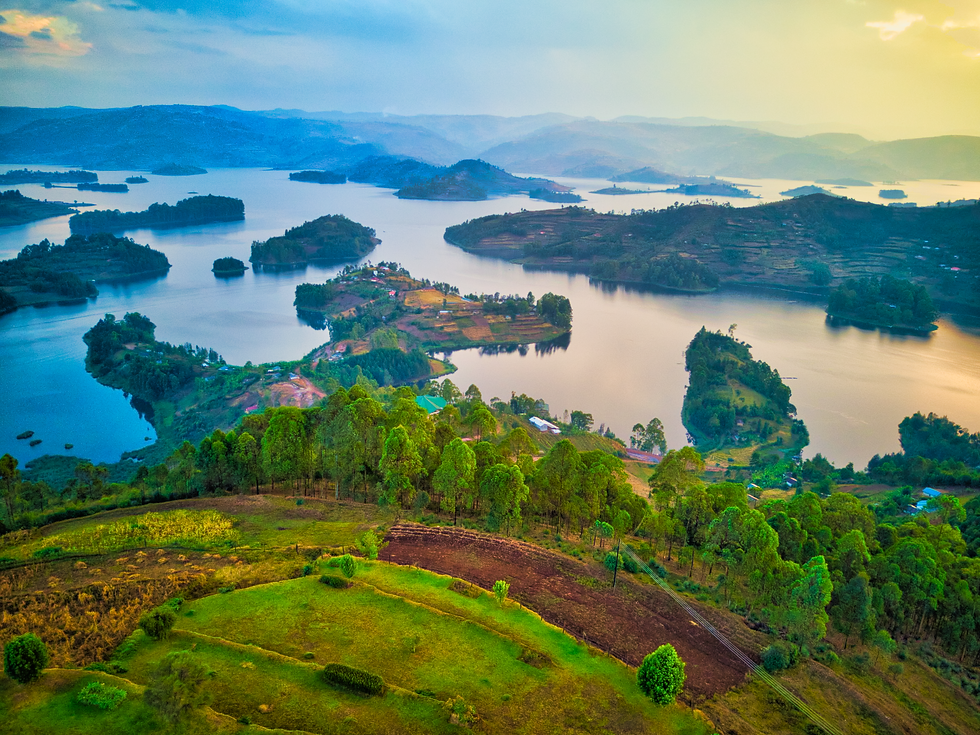
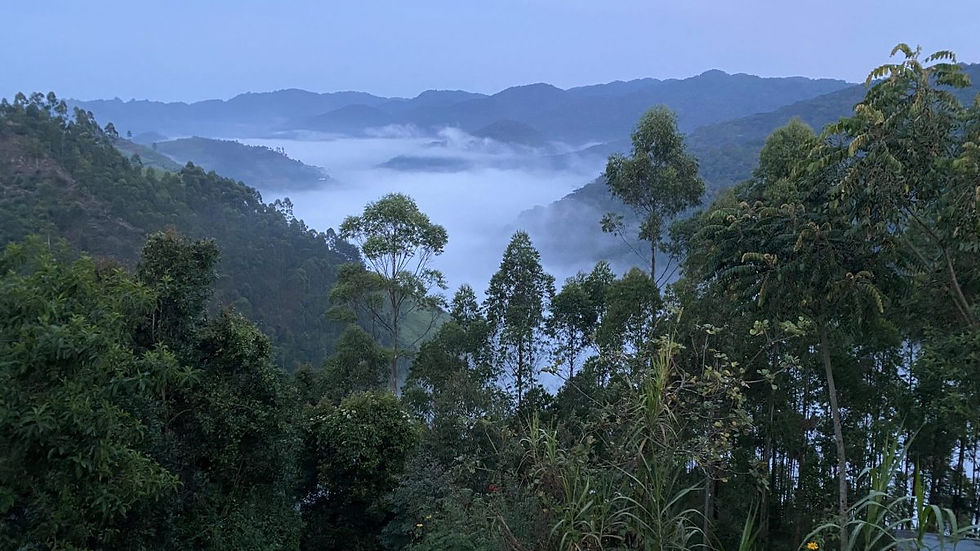
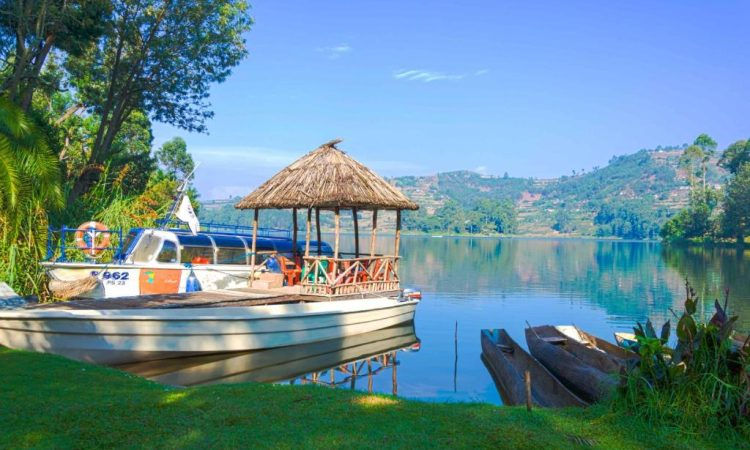
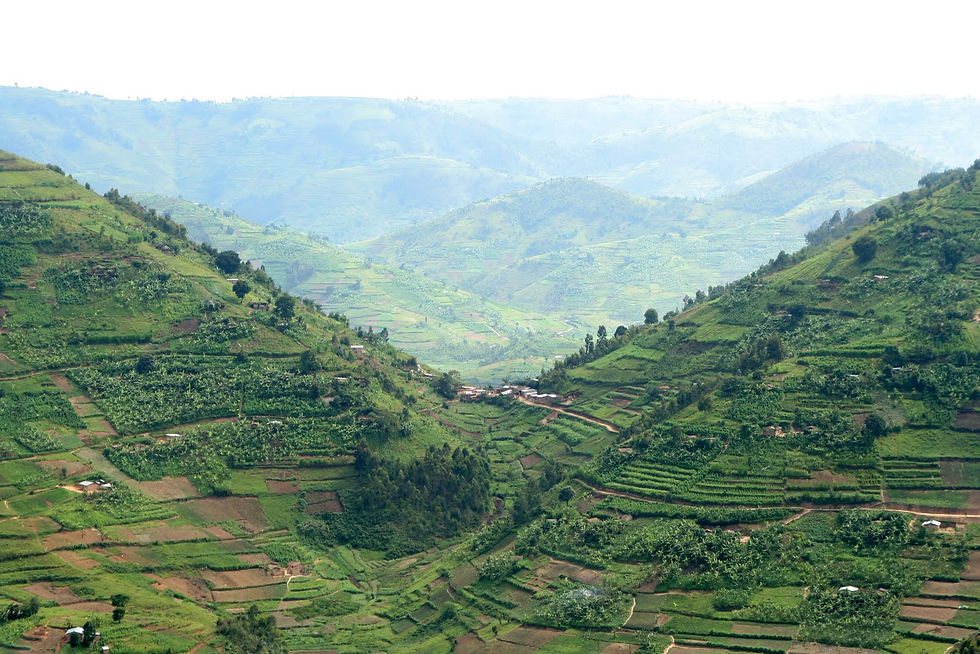
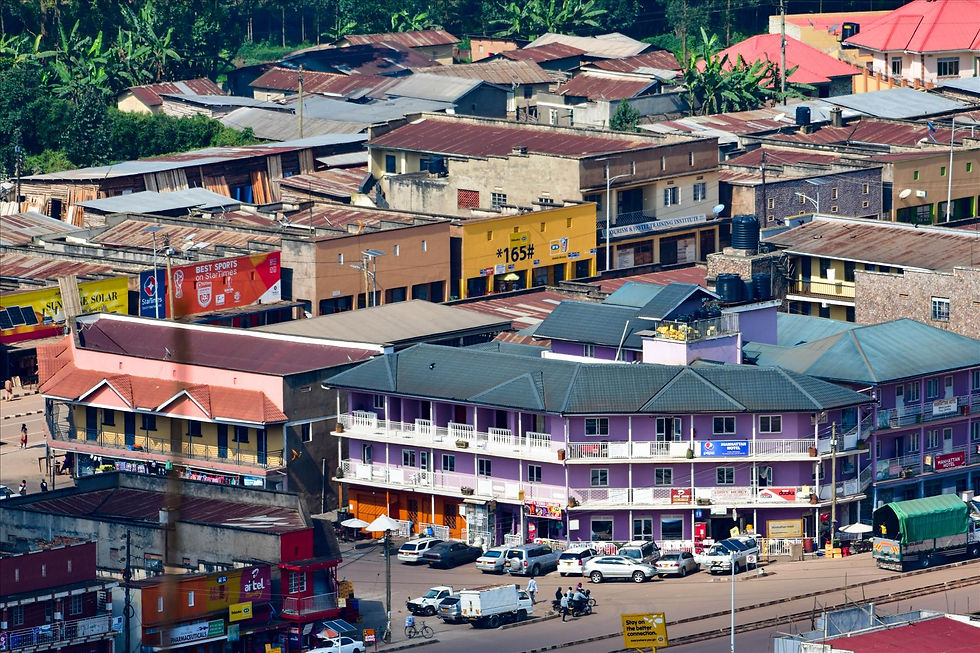
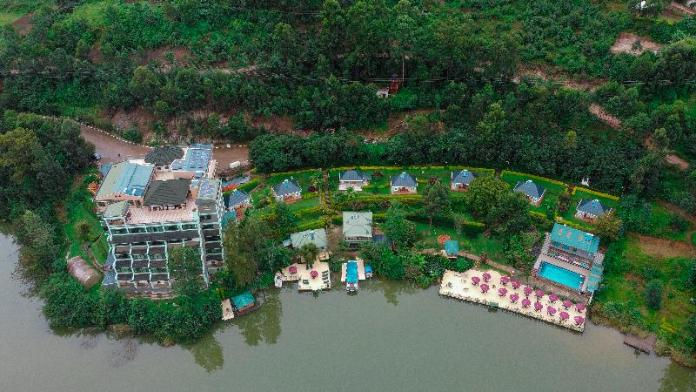
How to Get to Kabale
Kabale is accessible by air, road, or public transport.
-
By Air: Charter flights from Entebbe or Kajjansi to Kabale Airstrip (1.5 hours, $200-$500 one-way) via Aerolink Uganda, followed by a 10-minute drive to town. Kisoro Airstrip (88km, 2.5 hours) is an alternative for Rwanda arrivals.
-
By Road: From Kampala, the 410km drive (6-7 hours) via Masaka and Mbarara is tarmacked until Kabale. From Mbarara, it’s 80km (2 hours); from Kigali, Rwanda, it’s 80km (2-3 hours) via Katuna border. A 4x4 is recommended for wet seasons or Lake Bunyonyi’s murram roads. Guided transfers cost $100-$250.
-
Public Transport: Buses from Kampala to Kabale (e.g., Jaguar Coaches, Postbus) cost UGX 20,000-30,000 ($5-$8), taking 6-7 hours. Taxis or boda-bodas from Kabale to Lake Bunyonyi (8km) cost UGX 5,000-10,000 ($1-$3). Kigezi Tours offers shuttles ($15-$30).
-
Visa Requirements: Uganda visas ($50) are available online or on arrival. The $100 East African Tourist Visa covers Uganda, Rwanda, and Kenya. Carry a yellow fever vaccination certificate.
-
Access Points: Kabale Town is the central hub, with Main Street hosting tour operators and transport. Lake Bunyonyi’s Rutinda and Bufuka docks are 8km away.
BEST TIME TO VISIT
Kabale’s high-altitude climate (1,800m) ensures cool, pleasant weather year-round.
-
Dry Seasons (June-September, December-February): Ideal for hiking, canoeing, and gorilla trekking, with clear skies and drier trails. July is driest (20mm rain). Book lodges and permits 3-12 months ahead for peak season (June-July). Temperatures range from 15-25°C (59-77°F).
-
Wet Seasons (March-May, September-November): Lush greenery and vibrant birdlife, with fewer crowds. October is wettest (150mm rain), but activities continue. April offers budget-friendly rates.
Park Fees and Permits
Fees vary by attraction, with park fees managed by UWA.
-
Lake Bunyonyi Activities: Canoeing/boat tours ($10-$50), cultural tours ($10-$30), birding/cycling ($15-$50).
-
Gorilla Trekking (Bwindi/Mgahinga): $800 (non-residents), $700 (residents), UGX 250,000 (~$67) (East Africans).
-
Echuya Forest Walks: $20-$40 per person.
-
Kabale Cultural Museum/Town Walks: $5-$20 per person.
-
Park Entrance (Bwindi/Mgahinga): $40/day (non-residents), UGX 20,000 (~$5) (East Africans)
WHERE TO STAY
Kabale offers accommodations in town and near Lake Bunyonyi.
-
Luxury: Cepha’s Inn (Kabale Town) offers modern rooms with hill views ($80-$150/night). Birdnest Resort (Lake Bunyonyi, 8km) provides upscale lakefront lodging ($100-$200).
-
Mid-Range: White Horse Inn, a colonial-era gem, and Kigezi Gardens Inn offer cozy rooms ($40-$80). Bunyonyi Overland Resort (Lake Bunyonyi) features cottages ($30-$60).
-
Budget: Kabale Backpackers and Green Hills Hotel provide dorms or simple rooms ($10-$30). UWA Campsites at Lake Bunyonyi’s Rutinda cost $5-$10/person.
-
Community-Based: Bakiga homestays in Rubanda or Batwa homestays near Bunyonyi, arranged by Edirisa, offer cultural immersion ($10-$20).
Book early for dry seasons. Most include meals, Wi-Fi, and activity transfers.


DINING AT kabale
Dining in Kabale blends Ugandan highland cuisine with international options, often enjoyed with views of Kigezi’s hills. At Cepha’s Inn, savor matoke (steamed bananas), luwombo (stew in banana leaves), and grilled tilapia from Lake Bunyonyi, paired with Irish potatoes, a Kigezi staple. Budget eateries on Main Street serve rolex (egg-chapati roll) and kalo (millet bread) for $1-$3. Bunyonyi Overland Resort offers crayfish dishes and Kabale coffee, grown locally. Cultural tours include Bakiga meals like smoked fish or groundnut stew, often cooked over open fires. Kabale’s Wednesday/Saturday markets sell fresh passionfruit and avocados. Most restaurants accommodate vegetarian, vegan, or gluten-free diets with advance notice, ensuring a taste of Kigezi’s hearty cuisine.
Packing List & Preparation
Prepare for highland weather and outdoor activities.
-
Clothing: Lightweight long-sleeved shirts, trousers, swimsuit (for Bunyonyi), rain jacket, sturdy shoes, warm layers for cool nights (10-15°C). Neutral colors for park visits.
-
Gear: Binoculars, camera, insect repellent, sunscreen, reusable water bottle, daypack, towel for swimming.
-
Health: Yellow fever vaccination (required), malaria prophylaxis, personal medications, first aid kit. Light fitness suffices for canoeing and walks; moderate for gorilla trekking.
-
Other: Cash (USD/UGX) for tips ($5-$15 for guides), souvenirs (e.g., kitenge fabric), permit confirmations, passport.
Boda-bodas are common but bumpy; use lodge shuttles for comfort.
Safety & Conservation
Kabale is safe with established tourism measures.
-
Safety: Kabale Town has police patrols, and UWA rangers escort park activities. The Katuna border is secure for Rwanda travel. Avoid walking alone at night in town due to petty theft risks.
-
Environmental Health: Avoid littering at Lake Bunyonyi to protect its ecosystem. Bunyonyi is bilharzia-free, but swim in designated areas.
-
Conservation: Tourism supports Bakiga/Batwa community projects, like Edirisa’s schools, and park conservation (e.g., gorilla protection in Bwindi). Sustainable operators like Kigezi Tours promote reforestation in Echuya Forest. Respect cultural sites to preserve Kigezi’s heritage.
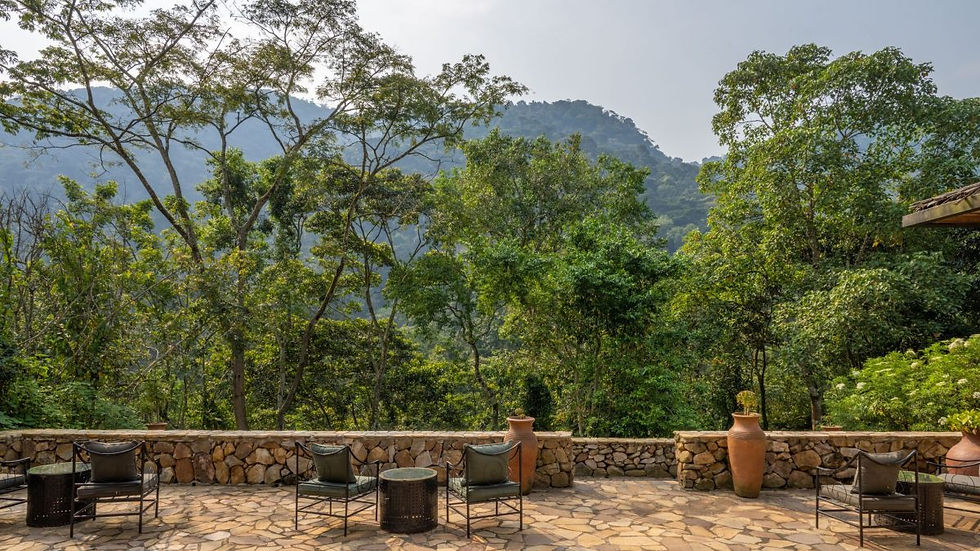
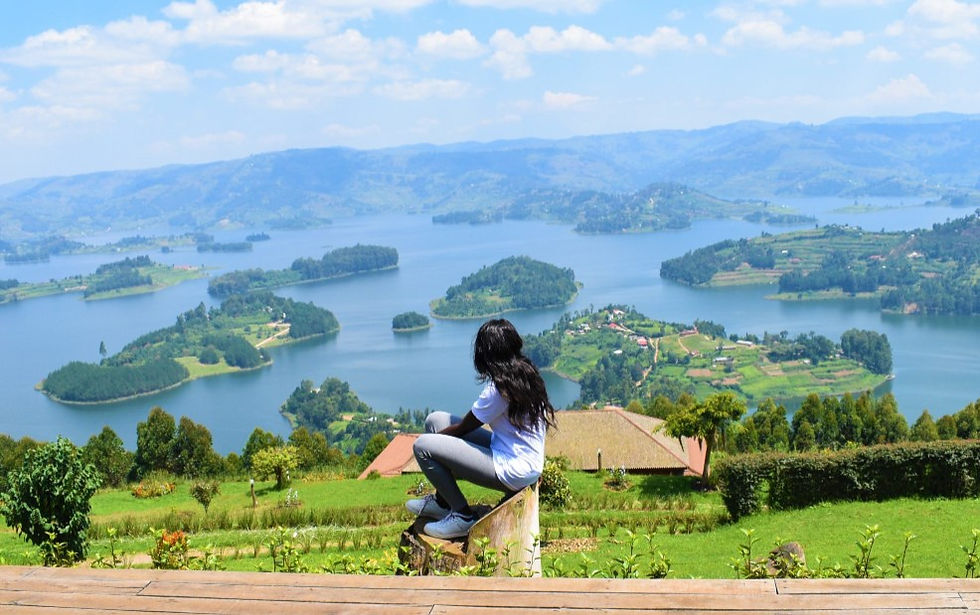
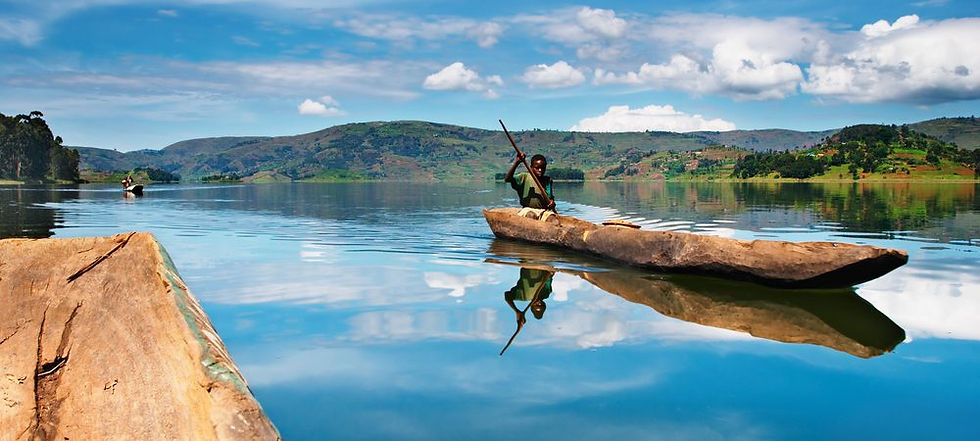
FAQ
What is the best time to visit kabale?
Dry seasons (June-September, December-February) for outdoor activities; wet seasons (March-May, September-November) for birdwatching and budget travel.
How much are gorilla permits?
$800 for non-residents, $700 for residents, UGX 250,000 for East Africans.
Is Kabale safe?
Yes, with police patrols and ranger escorts in parks. Avoid night walks in town.
Is Lake Bunyonyi in Kabale?
Yes, it’s 8km from Kabale, distinct from Lake Mburo (3 hours away) or Kisoro’s Lake Mutanda (2 hours).
Can I visit Bwindi from Kabale?
Yes, Buhoma is a 2-hour drive, ideal for day trips or overnights.

